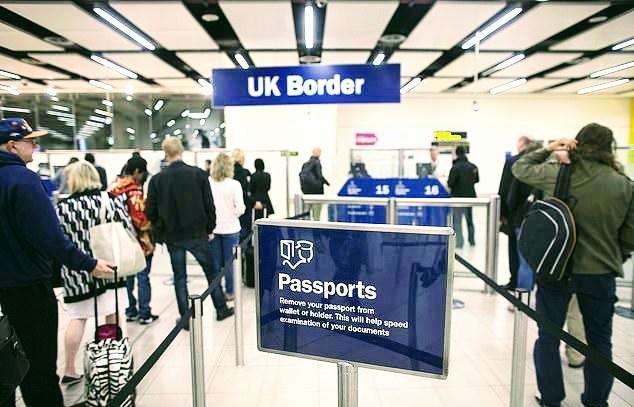In order to improve Britain's economy, leading scientists have now urged policymakers to examine the upfront expenses that employees in the STEM fields—science, technology, engineering, and math—must pay. Over the past five years, the cost of obtaining authorization to work here has skyrocketed, which has boosted international rivals, despite the visa regime's failure to stop massive immigration.According to government statistics, net migration was 728,000 in the year ending June 2023, primarily due to the entrance of almost 470,000 foreign workers. "There is a global shortage of scientists, and because it's a global shortage, there is global competition," stated Professor Alison Noble of the Royal Society. People will decide not to come if the visa application process is unappealing. After receiving several job offers, they will consider the reasons for moving to a different nation.
Visa costs – including the immigration health surcharge intended as a contribution towards NHS care – must be paid upfront for the duration of the visa. So a scientist applying to come here for five years might pay up to £1,639 for a visa plus a £5,175 health surcharge.
The Royal Society published research last year which showed visa fees have risen by 126 per cent since 2019. The UK’s fees are higher than any of the 17 other leading nations scrutinised by the report, including the United States, Japan, France and Switzerland.
Meanwhile, some countries have reduced their fees. France slashed its skilled worker visa costs by 92 per cent to £278 in 2023.
The fees also apply for spouses and children, so the total could be tens of thousands of pounds.
Cancer Research UK has said it spent more than £477,000 on visas for researchers in 2022-23, with costs set to rise by more than £210,000 per year.
Professor Noble added: ‘Why can’t you pay annually, for example? This would then reduce this barrier.’
John Longworth, of the Independent Business Network of Family Businesses, said: ‘There needs to be a balanced approach where we don’t overcharge people who are making a net contribution to the economy. They could get a discount on their visa fees.’
A government spokesman said: ‘We are grateful for the incredible work skilled international professionals do in the UK.
‘Our visa fees have been informed by the principle that those who use and benefit from the immigration system should contribute towards the cost of operating it, reducing the level of taxpayer funding that would otherwise be required.’








.svg)



